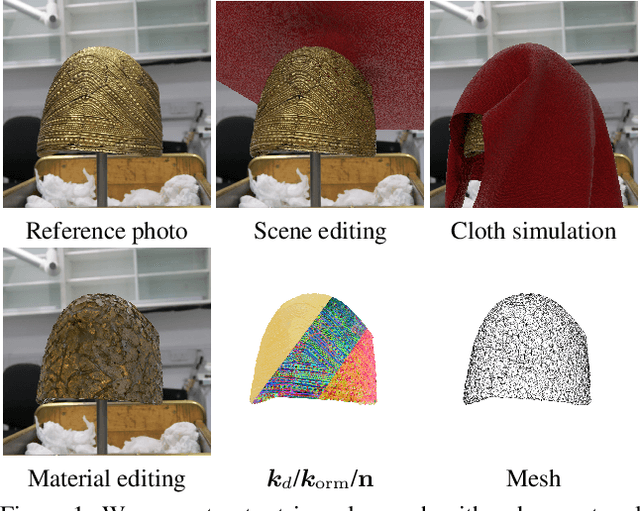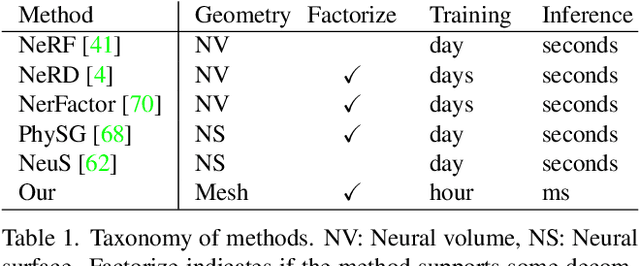Extracting Triangular 3D Models, Materials, and Lighting From Images
Paper and Code
Nov 24, 2021



We present an efficient method for joint optimization of topology, materials and lighting from multi-view image observations. Unlike recent multi-view reconstruction approaches, which typically produce entangled 3D representations encoded in neural networks, we output triangle meshes with spatially-varying materials and environment lighting that can be deployed in any traditional graphics engine unmodified. We leverage recent work in differentiable rendering, coordinate-based networks to compactly represent volumetric texturing, alongside differentiable marching tetrahedrons to enable gradient-based optimization directly on the surface mesh. Finally, we introduce a differentiable formulation of the split sum approximation of environment lighting to efficiently recover all-frequency lighting. Experiments show our extracted models used in advanced scene editing, material decomposition, and high quality view interpolation, all running at interactive rates in triangle-based renderers (rasterizers and path tracers).
 Add to Chrome
Add to Chrome Add to Firefox
Add to Firefox Add to Edge
Add to Edge